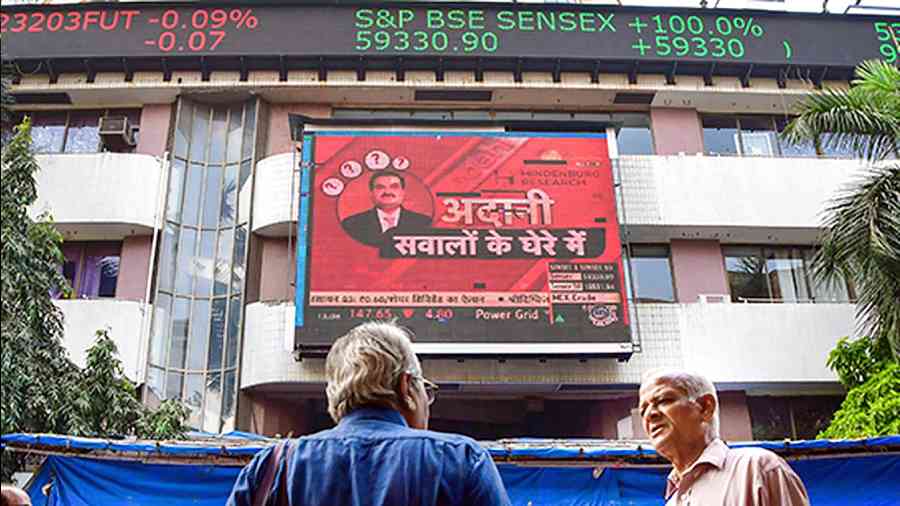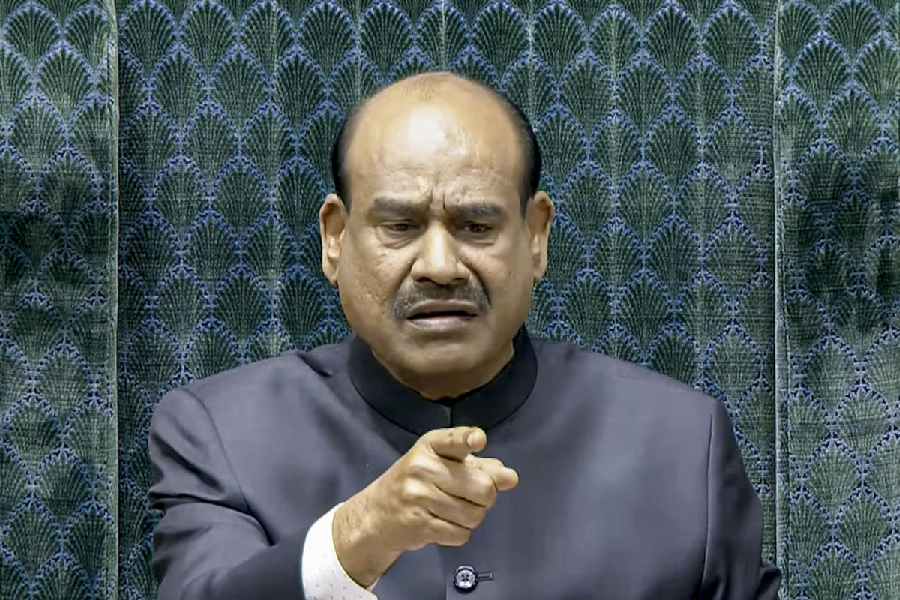It was the rudeness of the Hindenburg report on the Adani Group that set the stage for the theatre that followed. Consider its headline: “Adani Group: How The World’s 3rd Richest Man Is Pulling The Largest Con In Corporate History”. It ought to be taught in journalism school. No tabloid desk, no muckraking reporter, no algorithm could have dreamt up a better hook.
And that opening line: “Today we reveal the findings of our 2-year investigation, presenting evidence that the INR 17.8 trillion (U.S. $218 billion) Indian conglomerate Adani Group has engaged in a brazen stock manipulation and accounting fraud scheme over the course of decades.” It won’t displace “Many years later, as he faced the firing squad…” as the greatest first sentence ever written, but it did its job brilliantly; it made its case against the conglomerate in the pithiest, most provocative, way possible, skewering it in the public square to force a response.
That response, when it came, was a study in hubris. It was a peculiarly desi take on hubris, rooted in Adani Enterprises’ conviction that it doubles for India. In its rebuttal (five times the length of Hindenburg’s indictment), it argued, “This is not merely an unwarranted attack on any specific company but a calculated attack on India, the independence, integrity and quality of Indian institutions, and the growth story and ambition of India.” Ever since Narendra Modi used Gautam Adani’s plane during the 2014 election, his proximity to the prime minister and, through him, to the Government of India was public knowledge. This bid to hide behind Mother India’s petticoats was a variant of the Deewar Defence: “Mere paas Ma hai.”
Adani Enterprises’ CFO, Jugeshinder Singh, went one better in the nationalism stakes. He made a statement denouncing the report in a video that had him standing next to a large Indian flag. He subsequently compared Hindenburg to General Dyer who had ordered the firing that led to the Jallianwala Bagh massacre. “In Jallianwala Bagh, only one Englishman gave an order, and Indians fired on other Indians,” he said in an interview when asked why the market believed the Hindenburg report. “So, am I surprised by the behaviour of some fellow Indians? No.”
It takes a special kind of stupid to compare the stakeholders in Adani Enterprises to the innocents who were murdered in Jallianwala Bagh, but the fact that makes this patriotic eruption perfectly bathetic is that Jugenshinder Singh is Australian! This nakedly instrumental use of patriotism — the invocation of the flag, of historical martyrdom — is of a piece with the way in which Modi and his party have cherry-picked India’s anti-colonial nationalism to serve majoritarian ends. At the end of his statement withdrawing the FPO, Adani signed off with “Jai Hind”, leaving us to wonder what Hind had to do with this failed business venture. As Sahir Ludhianvi once asked in that great song from Pyasa, “Jinhe naaz hai Hind par woh kahan hain?”
Wherever else they are, they aren’t in India’s mainstream media. A report on the Adani scandal in the Financial Times notes that reports on the Adani Group “… were carefully worded in a country where editors rely on big corporate advertisers, and the government brooks little criticism”. “Carefully worded” is kind. India’s business papers slavishly imitate the FT down to the pink of its pages but they survive as front offices for corporate interests and mouthpieces for this powerful Modi government. After this corporate Philistine had been kayoed by a latter-day David from his WeWork space, we got to read statesmanlike op-eds in the financial dailies where veteran pundits let their readers know that they had known all along.
If the FPO fiasco were a boxing cartoon, it would feature a weedy Nate Anderson, the founder of Hindenburg, in Everlast shorts and 16 oz gloves standing over a massive and prone Adani. It’s not a coincidence that his rout followed so closely on the heels of Adani’s acquisition of NDTV, the one news platform that had held out against the superheated sycophancy that has characterised Modi’s time in office.
In an interview with the FT, Adani spoke of the acquisition of NDTV as a responsibility, not a commercial opportunity. He seemed concerned that India didn’t have “one single [outlet] to compare to Financial Times or Al Jazeera.” “Why can’t you support one media house to become independent and have a global footprint?” asked this born-again champion of media independence. The cost, he said, of establishing such a media outlet would be “negligible”. Adani saw NDTV and the mainstream media space as a kind of hobby corner in which he could dabble.
Such was Adani’s aura of invulnerability that even after Hindenburg’s damning report was published, most pundits believed that he would pull off the FPO because he was too big to fail. The knowing take on the conglomerate was that like the Zaibatsu and Chaebol of 20th-century east Asia, Adani was chief amongst India’s chosen corporate champions and as such the State would bail him out because he was crucial to India’s growth story. And briefly, they seemed to be right. After the FPO was fully subscribed, veteran hacks congratulated themselves and said, ‘I told you so.’
Newspapers reported speculation on how corporate arms were twisted and tycoons pressed to buy chunks of the offering. The meagre presence of retail investors was noted, then forgotten in the inevitability of the moment. It was an unusually transparent example of how stockholder capitalism works in countries like ours. Independent directors on the boards of Adani Enterprises and Elara Capital, credentialled, knowledgeable men, seemed unaware of potential breaches in corporate governance. Jo Johnson, Boris Johnson’s brother, resigned from Elara’s board after it was alleged that its Indian subsidiary had helped the Adani group manipulate the share prices of its companies. He pleaded a lack of ‘domain expertise’. Lord Meghnad Desai, another director on Elara’s board, said that the allegations, if true, were concerning. It was almost as if Adani’s ascension was such a certainty that scrutiny was deemed futile.
Backed by the Government of India, rich beyond the dreams of diamond merchants, Adani’s conviction that his rise was inevitable, that everything he touched would turn to gold, was the very definition of hubris. He forgot, perhaps, that the writ of his political patrons didn’t run beyond national borders, where an unlikely nemesis, a muckraking short seller, was biding his time.
mukulkesavan@hotmail.com










